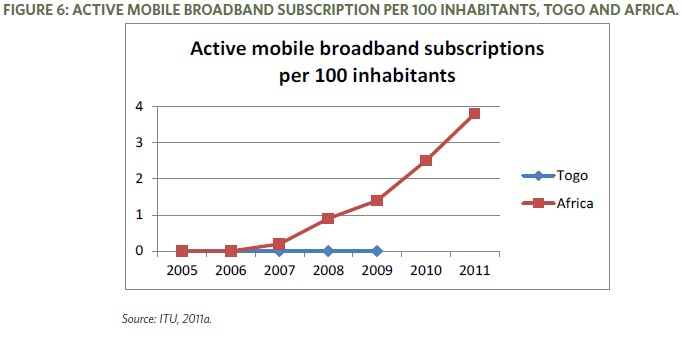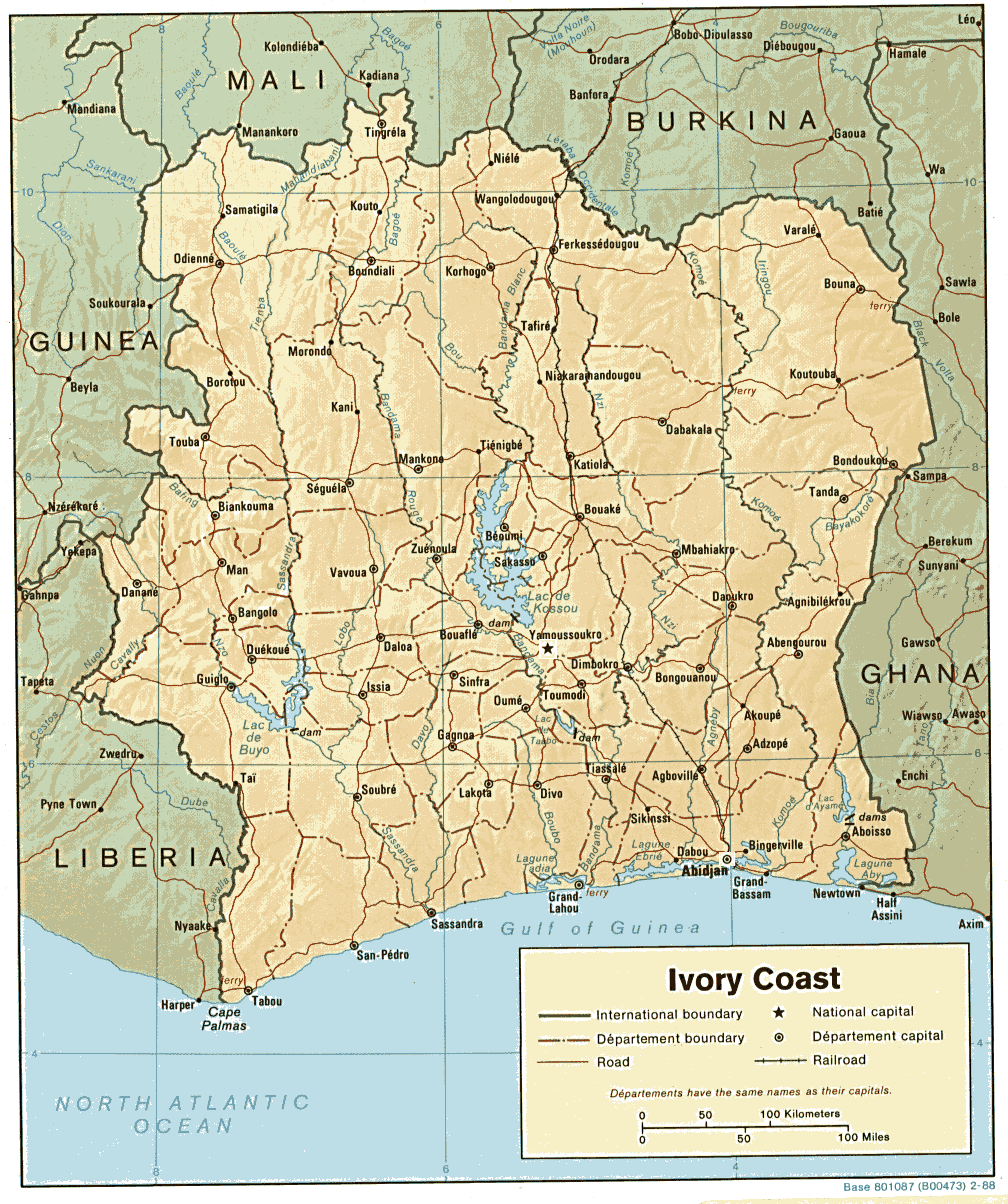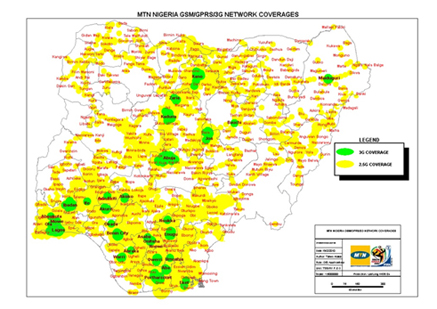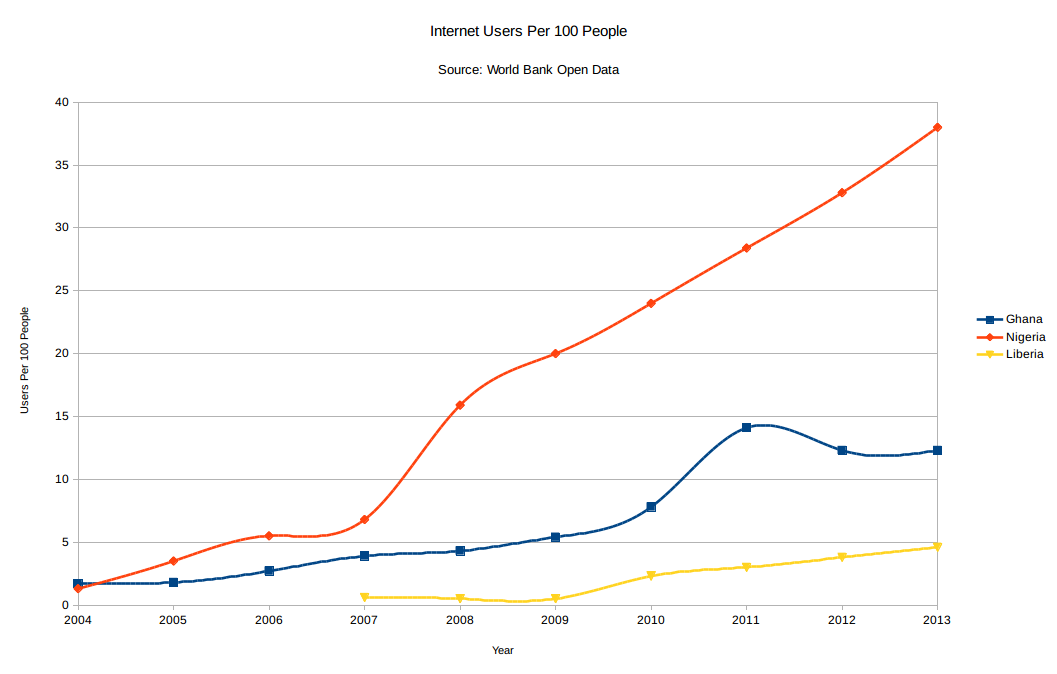I completed and successfully defended my Ph.D. dissertation in May 2018.
Category Archives: GMU Coursework
Teaser
Research Updates
I’ve added new material to the site since the end of this 2012-2013 academic year:
- Field Statement (.DOC)
- Bibliography
Concepts and Critiques of Power
- Field Statement (.DOC)
- Bibliography
Dissertation Research
- Proposal (Draft, .PDF)
- Updated Bibliography
Internet Census
An anonymous researcher (one person though they use “we” throughout their documentation) has released the results of an extraordinary study. By temporarily constructing a botnet on openly available devices around the world, they were able to map usage of the global internet over IPv4 at a scope and level of detail that has no rival outside of proprietary network operations databases.
Continue reading

Research Paper – Nationalism, ICT Policy, West Africa
Nationalism in the Internet Architecture Policy of Western Equatorial Africa
DOWNLOAD THE ESSAY
Abstract:
This essay addresses the puzzle of how nationalism affects the deployment of internet architecture policy for these five countries. In particular, it examines how the institutions that support the creation and enforcement of internet policy draw on cultural concepts of nationality and internationalism, and how these compare to the practice of establishing an internet architecture. Questions it must answer along the way include how to understand nationalism in this context, what the primary institutions are in this context, and what the relationships between states, institutions, and populations are, regarding internet policy across the region. It shows that nationalism appears in the creation of policy and the stated scope of institutions that support and regulate the internet, largely driven by cultural factors. However, technologies themselves hold a less direct relationship to these factors. The physical architecture and practices of implementation remain separated from nationalist ideology, but the patterns of diffusion, adoption, and restructuring that take place political and financial terms do have a lasting effect on technology’s role in culture.

Proposal (Revised) – Nationalism in the Making of Internet Policy in West Africa
In Western equatorial Africa, comprised of Cote D’Ivoire, Ghana, Togo, Benin, and Nigeria, national borders and cultural identity strike a balance between fluidity and rigidity. They navigate a tangled modern history of French and British colonialism. Anticolonial uprisings drew deeply on Marxist and Leninist principles, as well as precolonial concepts of African sovereignty, while political borders remained demarcated on colonial lines. Periods of revolution, coups, dictatorships and crisis wove together with periods of democratic governance, economic expansion, liberalization, and modernization. Contemporary national economies in the region continue to undergo transitions between agrarian and industrial production, liberalized and state-controlled markets, rapid growth and withering stagnation. In this context, the emergence of contemporary information and communication technologies, built from the infrastructure upwards, pose a challenge to the region’s policymakers, as they confront the horizon of internetworked societies that bridge local with global politics, commerce, and culture.

Case Study – Benin
Benin has a slightly larger population than its neighbor to the east, Togo, with about nine and a half million people. Only about 336,000 of these are internet users as of mid-2012. During the Middle Passage present-day Benin’s portion of the Bight of Benin coastline (along with what is now Togo) was known as the Slave Coast, due to the prevalence of the slave trade. It comprised the bulk of the Kingdom of Dahomey until the Scramble for Africa in the 19th century, after which French colonial authorities ruled the region. In 1960, Benin established its own democratic government. However, this democracy gave way to a dictatorship that lasted from 1972 through 1990, ending in severe economic crisis. Benin’s present government and economy have been working through this tangled history over the last twenty years, and their ongoing struggle forms the backdrop for their economic and technological situation. Continue reading

Case Study – Togo
Comprised of about seven million people (including only about 325,000 internet users), Togo represents one of the least-developed countries in Africa – and perhaps in the world. It therefore makes for a fascinating case study on the most intractable problems of technological governance and development, since it can be observed at its earliest stages and against severe economic and political stressors. The nation gained independence from France in 1960. While the official Togolese language is French, a number of local languages are spoken, and the majority of religious practitioners observe local religions, with Christianity and Islam retaining minority presences. Continue reading

Case Study – Cote D'Ivoire
Côte D’Ivoire gained its independence from France in 1960. Through 1993, Félix Houphouët-Boigny ruled the country, after which a coup by Robert Guei, popular protest to install Laurent Gbagbo, and two civil wars (with one ongoing today) have deeply shaken the presidential republic. A French colony in the early twentieth century, Côte D’Ivoire maintains French as its official language. Meanwhile, its largest ethnic group is Akan, similarly to its neighbor Ghana. Today, about 21 million people live in the nation, including about 300,000 internet users. That 1.4% of the population mainly live in and around the major coastal city of Abijan, the country’s largest, where several major fiber optic submarine cables land. Continue reading

Case Study – Nigeria
Nigeria is the largest and wealthiest of the nations in the Bight of Benin. After Nigeria’s independence from Britain in 1960, it quickly developed into a military state, which maintained its OPEC status and fought civil wars and coups to maintain power for nearly forty years. Over the last ten years, democracy has returned in fits and starts to the nation, along with increased economic stability and growth. The economy is strong and growing quickly around Nigeria, at a projected rate of about 8% this year. Along with its oil production and financial markets, Nigeria fosters a burgeoning telecommunications sector. Continue reading

